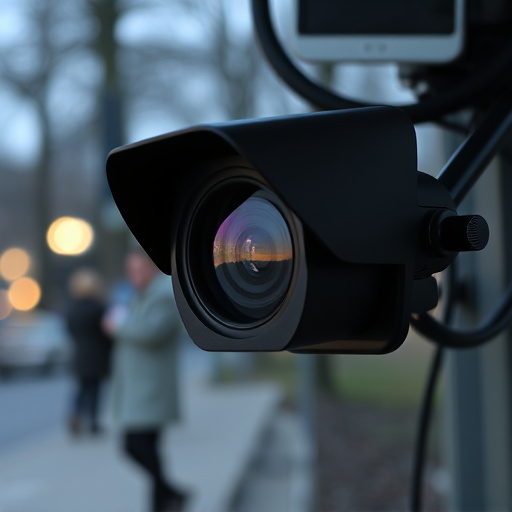In rental properties, navigating legal boundaries surrounding surveillance, particularly the use of concealed cameras for babysitter monitoring, is crucial. While parents have safety concerns, it's vital to respect privacy rights and comply with local laws, which often prohibit hidden camera placement in areas like bedrooms or bathrooms without consent. Alternative solutions include open communication and transparent video monitoring systems. Familiarizing oneself with local laws regarding surveillance technology is essential for both homeowners and tenants. Creative concealed camera setups offer subtle monitoring while maintaining privacy, but ethical considerations require transparency and tenant consent to balance security and privacy respect.
In today’s digital age, landlords often turn to concealed cameras for babysitter monitoring or property security. However, deploying hidden cameras in rental properties raises complex ethical and legal questions. This article delves into understanding the legal boundaries surrounding such surveillance, exploring common concealment spots where cameras might be placed, and examining privacy rights versus safety concerns. We navigate this delicate balance to help both landlords and tenants make informed decisions regarding concealed cameras in rentals.
- Understanding Legal Boundaries: What's Permissible?
- Common Concealment Spots for Hidden Cameras in Rentals
- Ethical Considerations and Privacy Rights: Balancing Act for Landlords
Understanding Legal Boundaries: What's Permissible?
In the realm of rental properties, understanding the legal boundaries surrounding surveillance is paramount, especially when considering hidden camera placement for babysitter monitoring. While parents may have legitimate concerns about ensuring their children’s safety, it’s crucial to navigate these waters carefully to avoid infringing on privacy rights. The use of concealed cameras is a complex issue, with laws varying across jurisdictions. In many places, installation of hidden cameras without the consent of all occupants is strictly prohibited, especially in areas like bedrooms and bathrooms where individuals expect privacy.
When it comes to babysitters, open communication is often the best approach. Parents can discuss their security concerns with the caregiver and explore alternative measures like video monitoring systems that do not involve concealed cameras. Such systems provide transparency and allow all parties to be aware of ongoing surveillance. It’s important for rental property owners and tenants alike to familiarize themselves with local laws regarding surveillance technology, ensuring they remain within permissible boundaries while addressing valid safety concerns.
Common Concealment Spots for Hidden Cameras in Rentals
In the quest to ensure safety and peace of mind, many homeowners turn to concealed cameras, especially when hiring a babysitter or renting out their property. These tiny yet powerful devices can be cleverly hidden in various spots around the house, offering covert surveillance without compromising aesthetics. Common locations for such secret setups include fake smoke detectors, electrical outlets, and fire alarms—all easily accessible and discreetly placed areas.
For instance, a creative setup could involve integrating a camera into a custom-made picture frame or clock, allowing it to blend seamlessly into the décor while capturing activities in the room. Additionally, with advancements in technology, smart home devices like motion-sensing lights or even decorative mirrors can double as hidden camera spots, providing both functionality and surveillance. These concealed cameras for babysitter monitoring offer a subtle yet effective way to keep an eye on things while maintaining privacy.
Ethical Considerations and Privacy Rights: Balancing Act for Landlords
In the realm of rental properties, the use of concealed cameras, often justified as a means to monitor babysitters or ensure property safety, raises significant ethical and privacy concerns. While landlords have legitimate interests in maintaining their assets and ensuring responsible caregiving, they must navigate a delicate balance between these objectives and the fundamental right to privacy. The installation of hidden surveillance devices without clear disclosure and consent from tenants can be seen as an invasion of personal space and a violation of trust.
Landlords considering such measures should remember that transparency is key. Any use of concealed cameras for babysitter monitoring or other purposes must be openly communicated to all parties involved, with explicit terms and conditions outlined in rental agreements. Tenants have the right to know when and where surveillance is present, enabling them to make informed decisions about their living spaces. Striking a chord between property protection and privacy respect is crucial for maintaining ethical standards and fostering harmonious relationships between landlords and tenants.
While concealed cameras, like those used for babysitter monitoring, can offer landlords peace of mind, it’s crucial to navigate legal boundaries and ethical considerations. Respecting tenant privacy is paramount, and any installation of hidden cameras in rental properties must adhere to strict regulations. Landlords should weigh the benefits against potential infringement on tenants’ rights, ensuring a fair balance that respects both security needs and individual privacy.
